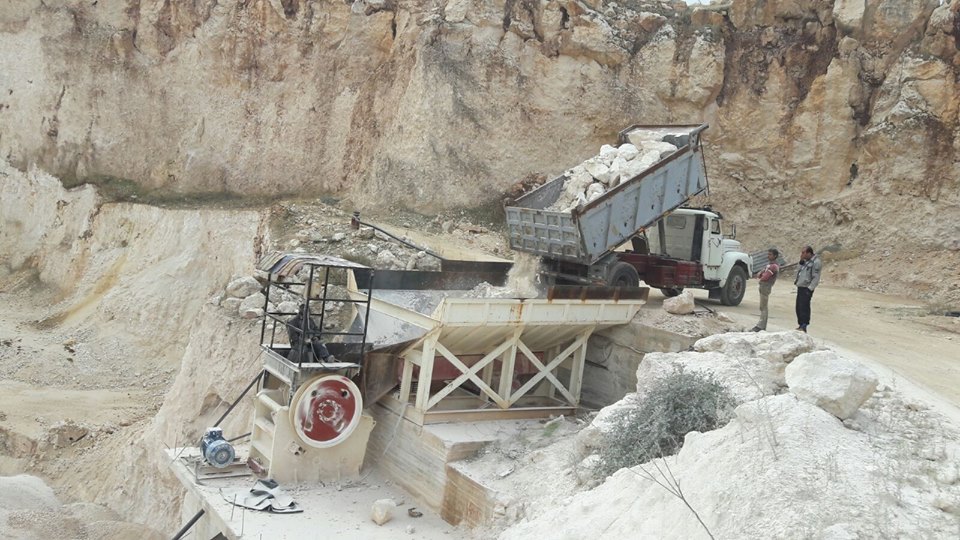The “Syrian Observatory” examines the phenomenon of the spread of random quarries in the northern countryside of Idlib: a source of concern and inconvenience to the people and a threat to the environment
The past period has witnessed a wide spread of tens of quarries in the northern countryside of Idlib, where it has become a source of concern and discomfort for civilians in the area, especially since these quarries are spreading on the outskirts of many towns such as the towns of Armanaz, Kafr Takharim, Harem, Salqin, Deir Hassan, and others, these quarries negatively affect the environment, destroy vegetation, contribute to the lack of green areas, in addition to a clear change in the nature’s topography and the destruction of the overall appearance of the area. and as part of an attempt to highlight this phenomenon, the Syrian Observatory for Human Rights obtained a testimony of an agricultural engineer from Ma’aret Hurmah town in the southern countryside of Idlib, about the harms and disadvantages of this phenomenon and its impact on lives of civilians north of Idlib, he said: “many quarries have spread in the recent years north of Idlib, in which rocks are cut from the mountains and milled to produce sand that is used in construction work, and these quarries have significant damage and negative consequences reflected on the reality, where they severely damage the agricultural aspect and causes damage to some types of agricultural crops and the nearby crops, such as olive, fig, and pomegranate trees, because of the dust caused by them which prevents the recovery of trees and their adequate feed, they also cause desertification. The negatives caused by these quarries cannot be limited only to the agricultural aspect, but they go far beyond that, as they are a source of disturbance to the people, and there is an increased risk of rock slides caused by the rock explosions, especially since these quarries are exceptionally random and are not subject to public safety requirements.”
The agricultural engineer warned in his testimony to the “Observatory” of the expansion of this phenomenon, stressing: “strict laws and conditions must be put in place to reduce it, in addition to restricting the quarries that exist at the moment with several safety conditions, which guarantees the reduction of their risks, these quarries have spread because of the urgent need for building materials, because of the intensity of the reconstruction in the Syrian north, and as a result of the shrinking of the areas that are controlled by the armed opposition factions, which reduced the places in which the sand production takes place, but we call for avoiding its risks and warning of the problems caused by it.”
In the same context, the Syrian Observatory for Human Rights obtained a testimony of a resident from Deir Hassan town in the northern countryside of Idlib, in which he talked about the extent to which the civilians in the town have been affected by the presence of more than 20 quarries in the vicinity of the town, he said: “more than 20 quarrying spread around Deir Hassan town, an these quarries have become a major source of discomfort to the civilians here, and they are an uncivilized manifestation. Deir Hassan town became unwanted even for housing, and it reached a point where it became the last destination for the displaced people because of the heavy dust that covers everything here, and the sounds caused by blowing up and breaking rocks which are intolerable, without any deterrent preventing them from doing their work, as they do not care about the situation of civilians in the area, and we became waiting for Friday, which is the holiday for most of these quarries to be relieved from their noise. We call on the responsible and concerned authorities to stop the spread of this bad phenomenon and to reduce the risk of tens of quarries scattered here, and to subject them to strict conditions that protect civilians from their dangers and troubles, which are no longer tolerated, also the displaced people in the camps are among the people who are most affected by these quarries, and some of them have even begun to look for another place to displace to fleeing from these quarries, we also demand that at least certain working hours to be set at least, and to consider the conditions of the people and their feelings about this negative phenomenon.”

